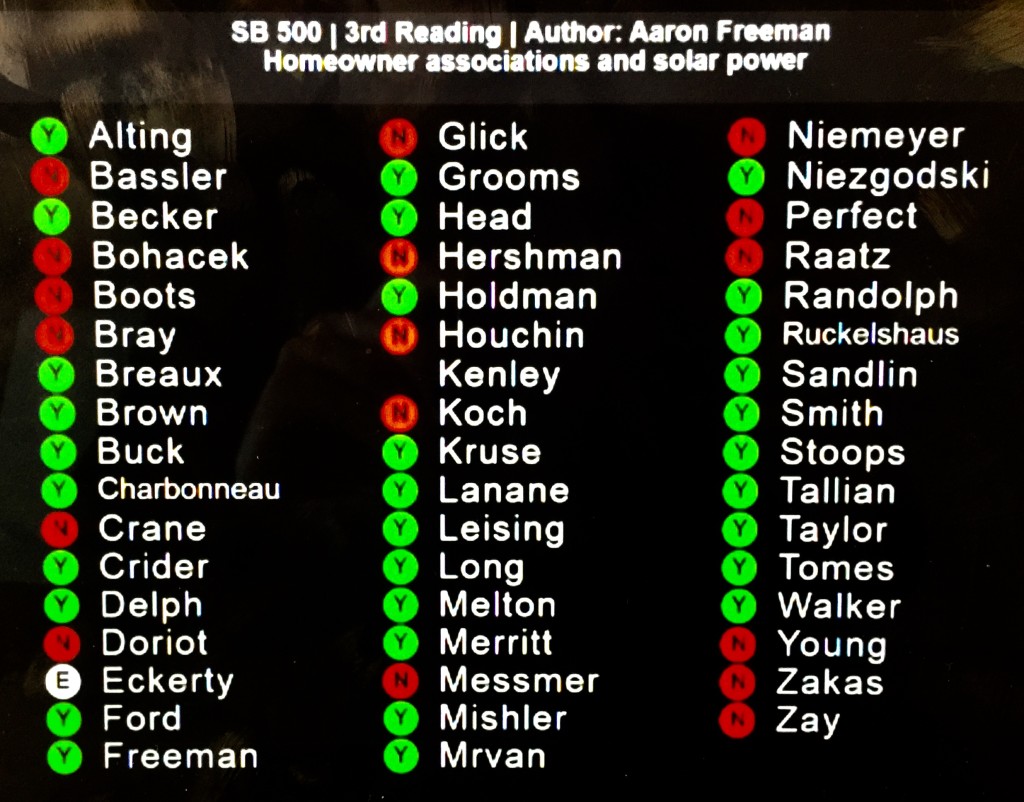Pull the plug on Indiana Senate solar bill; more study needed to determine impact of net metering reduction
Solar energy offers a clean, renewable resource to power and heat homes, businesses, schools and other structures. Its popularity is growing. Still it accounts for only 1 percent of America’s energy.
Hoosiers using solar panels typically lower their utility bills. Homeowners and businesses that generate their own energy with solar panels can get credit on their power bills by routing any excess energy produced into the power grid. That infrastructure is owned by the large utility corporations.
As the Tribune-Star’s Alex Modesitt reported last week, most solar producers in Indiana receive about 11 cents for every kilowatt hour sold to the power grid, which is the retail rate. The practice is known as “net metering.” Utility companies pay only 3.5 cents per kilowatt hour for energy elsewhere. That mark-up, power companies insist, is unfair, especially because they must maintain and service the infrastructure. The corporations also say their non-solar-producing customers are essentially funding the higher solar credits.
The utility corporations want the Indiana Legislature to act on their behalf. State Sen. Brant Hershman (R-Buck Creek) proposed a bill to substantially reduce the reimbursement to people, businesses and other solar users who feed excess energy back to the grid. Changes under that bill would begin in 2022.
Power companies and Hershman present their case as a “reset [of] the marketplace.” The net metering rewards solar energy producers too generously, they contend.
The fledgling solar power industry, and individual Hoosier homeowners and business operators relying on solar panels, need consideration from lawmakers, too. The owner of a Terre Haute solar company said he would likely move his business across the state line to Illinois if the legislation passes. “The only people crying about net metering are the ones on the utility side,” he told Modesitt.
Indeed, lawmakers need to keep the utility corporations’ complaints in perspective. Those companies enjoy monopoly status in Indiana because of the “high costs associated with the duplication of infrastructure,” according to the Indiana Utility Regulatory Commission. That monopoly status diminishes the utilities’ argument that the mark-up credited to solar-using homeowners, businesses and young solar energy firms is too generous. Also, power companies and affiliated political committees donated $76,000 during the past three years to the campaigns of state Senate members of both parties. Those power companies clearly have allies in the Statehouse.
As it is, the change could sideline new, small solar producing businesses, reduce the incentive for Average Joes and Janes to install solar panels, and leave solar energy development to those large power corporations.
This bill should be put on ice. The issue deserves more study.
– (Terre Haute) Tribune-Star







